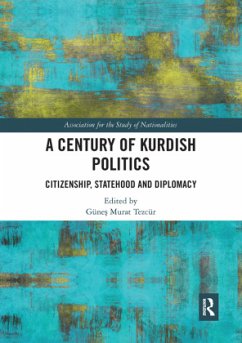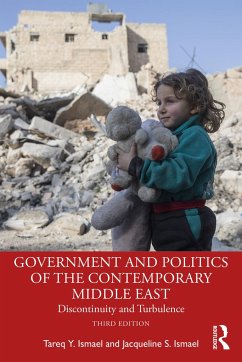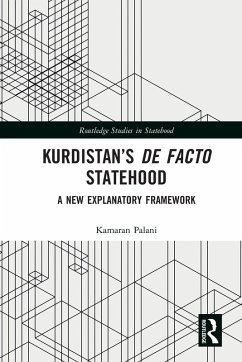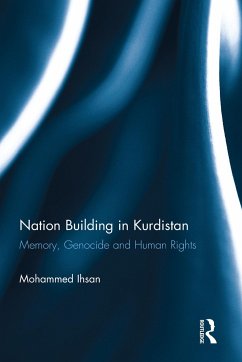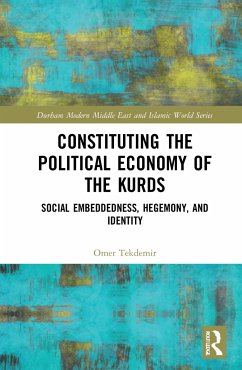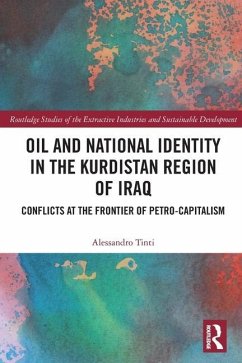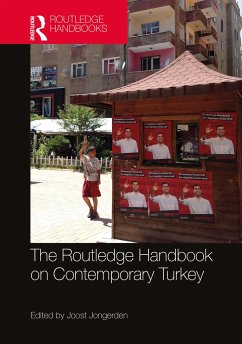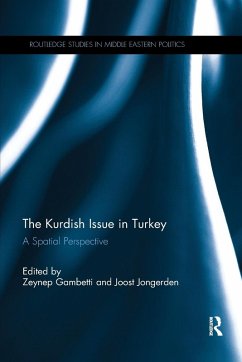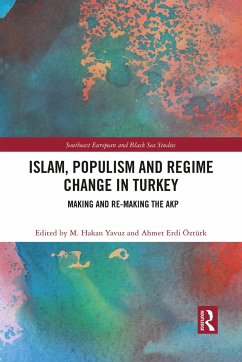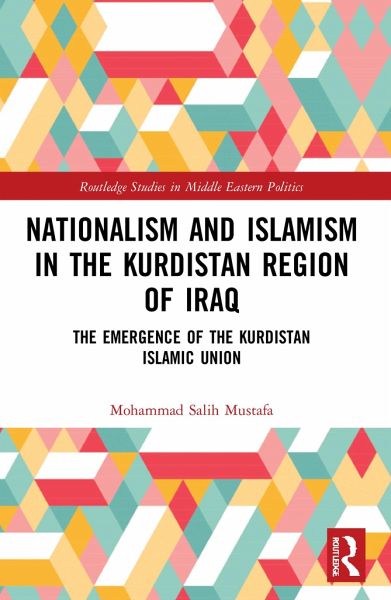
Nationalism and Islamism in the Kurdistan Region of Iraq
The Emergence of the Kurdistan Islamic Union
Versandkostenfrei!
Versandfertig in 6-10 Tagen
43,99 €
inkl. MwSt.
Weitere Ausgaben:

PAYBACK Punkte
22 °P sammeln!
Exploring a new political phenomenon in the Middle East, this book studies the reconciliation of nationalism and Islamism by Islamic political parties in the context of nation states. Islamism in Kurdistan has become significantly framed by the politics of nationalism.Although the concept of religious nationalism has been discussed substantially before, this work highlights a new brand of religious nationalism that has emerged as a result of intertwining nationalism and Islamism. The focus of this study is on the development of religious nationalism in the continuously tumultuous region of the...
Exploring a new political phenomenon in the Middle East, this book studies the reconciliation of nationalism and Islamism by Islamic political parties in the context of nation states. Islamism in Kurdistan has become significantly framed by the politics of nationalism.
Although the concept of religious nationalism has been discussed substantially before, this work highlights a new brand of religious nationalism that has emerged as a result of intertwining nationalism and Islamism. The focus of this study is on the development of religious nationalism in the continuously tumultuous region of the Middle East. The volume investigates whether Islamism in Kurdistan is limited by the politics of nationalism - which is an accentuated example for the whole Middle East region. By looking at the Kurdistan Islamic Union (KIU), the research studies Islamism in the Kurdistan Region to elaborate on this new type of politics. This is essentially due to the absence of a politically recognised nation state, which renders Kurds to be particularly susceptible to various manifestations of nationalism.
Offering an account on the spread of the Muslim Brotherhood in the Kurdistan Region, this original research on Kurdish nationalism will be a key text for students and researchers interested in nationalism, Islamism and Middle East politics.
Although the concept of religious nationalism has been discussed substantially before, this work highlights a new brand of religious nationalism that has emerged as a result of intertwining nationalism and Islamism. The focus of this study is on the development of religious nationalism in the continuously tumultuous region of the Middle East. The volume investigates whether Islamism in Kurdistan is limited by the politics of nationalism - which is an accentuated example for the whole Middle East region. By looking at the Kurdistan Islamic Union (KIU), the research studies Islamism in the Kurdistan Region to elaborate on this new type of politics. This is essentially due to the absence of a politically recognised nation state, which renders Kurds to be particularly susceptible to various manifestations of nationalism.
Offering an account on the spread of the Muslim Brotherhood in the Kurdistan Region, this original research on Kurdish nationalism will be a key text for students and researchers interested in nationalism, Islamism and Middle East politics.






